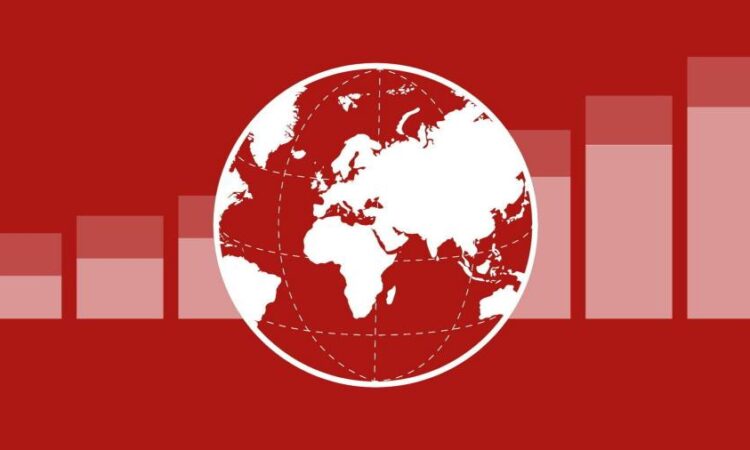
US stocks and bonds fell on Friday as investors assessed fresh data that showed that consumers’ concerns about long-term inflation rose.
Wall Street’s benchmark S&P 500 reversed earlier gains to trade 0.2 per cent lower, ending the week down 0.3 per cent. The tech-heavy Nasdaq Composite was down 0.4 per cent, but advanced 0.4 per cent over the week.
The yield on interest rate-sensitive two-year Treasury notes rose 0.08 percentage points to 3.99 per cent, while the yield on the 10-year note was up 0.06 percentage points at 3.46 per cent. Bond yields rise when prices fall.
The moves followed the preliminary reading of the University of Michigan’s consumer sentiment index, which fell more than expected and which showed respondents’ expectations for long-run inflation escalated to a 12-year high, as consumers worried that higher prices could persist for a while.
“Inflationary expectations are tantamount to actual inflation as far as the [Federal Reserve] is concerned,” said Dana Grigg, president of Camelotta Advisors. “It would indicate that the Fed would have to maintain rates at higher levels for longer than the market expected, which would dry up liquidity.”
Investors also considered a report from the US Congressional Budget Office, which warned that if the debt ceiling is not raised, the government could default in the first two weeks of June.
“Background jitters are beginning to emerge around the upcoming debt ceiling deadline,” said Karl Schamotta, chief market strategist at Corpay. “No one has a technical default as a base case, but prudent market participants are going to avoid taking big directional positions just in case.”
Investor sentiment is being swayed by economic data, with traders looking for signs that the Fed has made progress in cooling the US economy and reducing inflation, and might be nearing the end of its policy of higher interest rates.
The tech-heavy Nasdaq Composite index has added nearly 20 per cent this year, far outpacing the 8 per cent gain of the S&P 500.
“The anticipation of that peak [of interest rate rises] from the Federal Reserve is supporting tech more than it is supporting anything else,” said Mobeen Tahir, director of macroeconomic research and tactical solutions at WisdomTree Europe.
Michelle Bowman, a voting member on the Fed’s policy-setting commit, on Friday warned recent US inflation and employment data had not convinced her that price pressures were under control and she left the door open to voting for further rate rises.

In Europe, the region-wide Stoxx 600 share benchmark rose 0.4 per cent, aided by strong corporate earnings from Switzerland’s Richemont, which boosted luxury goods makers. France’s CAC 40 added 0.5 per cent, led by strong earnings from French reinsurer Scor.
The gains came despite hawkish signalling from the European policymakers, with the head of Germany’s central bank Joachim Nagel saying eurozone interest rates could still rise in September because of sticky underlying inflation measures.
The European Central Bank last week raised its deposit rate to 3.25 per cent. Most economists expect it to pause at 3.75 per cent in July.
London’s FTSE 100 gained 0.3 per cent as official data showed the economy expanding 0.1 per cent between the last quarter of 2022 and the first three months of this year, unchanged from the previous quarter and in line with analysts’ expectations.
The dollar gained 0.6 per cent against a basket of six other currencies.
Equities declined in Asia, with Hong Kong’s Hang Seng index falling 0.6 per cent and China’s CSI 300 shedding 1.3 per cent. Japan’s Topix was the exception, adding 0.6 per cent. It was buoyed by positive earnings forecasts from some of the country’s biggest companies in recent days.





